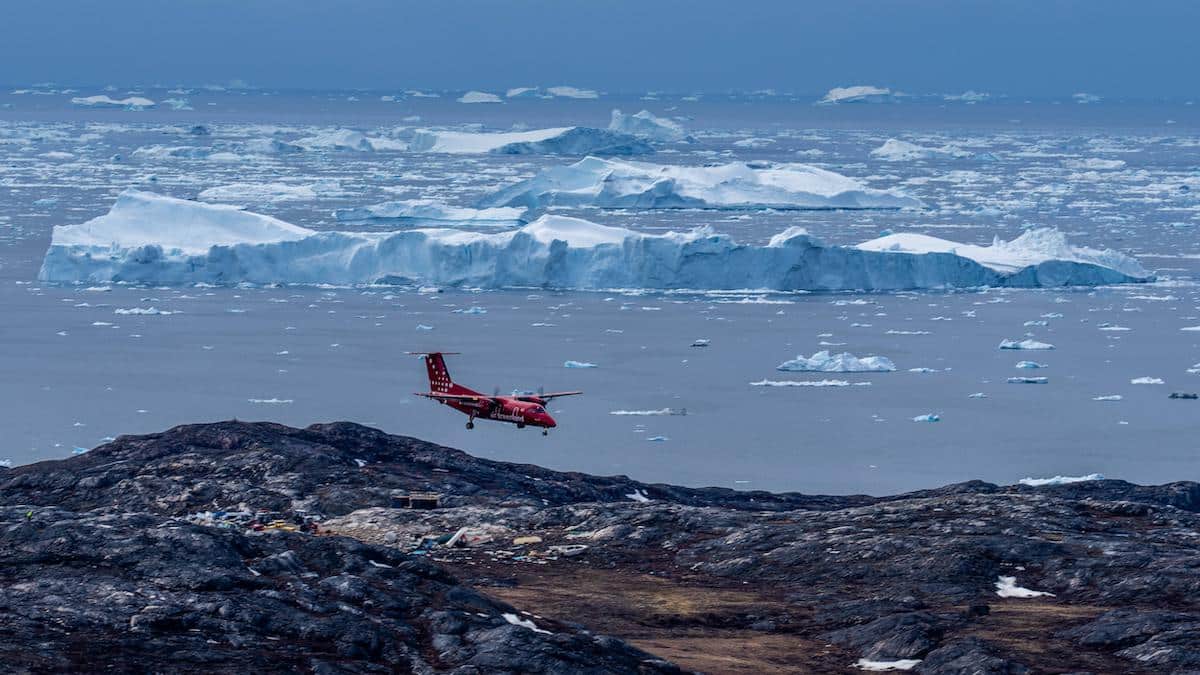
Extreme Ice Melt in Greenland in One Day Was Enough to Cover Florida in Two Inches of Water

Icebergs near Ilulissat, Greenland on May 19, 2021. Climate change is having a profound effect in Greenland with glaciers and the Greenland ice cap retreating. Ulrik Pedersen / NurPhoto via Getty Images
Ice sheets in Greenland are melting so rapidly due to high temperatures in the Arctic that the amount of ice melt from Tuesday was enough to cover all of Florida in two inches of water, according to the researchers at Polar Portal.
https://twitter.com/WMO/statuses/1420665634518708229
Greenland has lost 18.4 billion tons of surface mass since last Sunday. While not as bad as 2019, this is the third instance of extreme melting in the past decade and the scientists say the area of land melting is larger this time.
“In the past decade, we’ve already seen that surface melting in Greenland has become both more severe and more erratic,” Thomas Slater, a glaciologist at the University of Leeds told CNN. “As the atmosphere continues to warm over Greenland, events such as yesterday’s extreme melting will become more frequent.”
As reported by CNN:
In 2019, Greenland shed roughly 532 billion tons of ice into the sea. During that year, an unexpectedly hot spring and a July heat wave caused almost the entire ice sheet’s surface to begin melting. Global sea level rose permanently by 1.5 millimeters as a result.
As Greenland’s surface continues to thaw, Slater said coastal cities around the world are vulnerable to storm-surge flooding, especially when extreme weather coincides with high tides. Melting from Greenland is expected to raise global sea level between 2 and 10 centimeters by the end of the century, he added.
—
“While such events are concerning, the science is clear,” Slater said. “Meaningful climate targets and action can still limit how much the global sea level will rise this century, reducing the damage done by severe flooding to people and infrastructure around the world.”
For a deeper dive:
For more climate change and clean energy news, you can follow Climate Nexus on Twitter and Facebook, sign up for daily Hot News, and visit their news site, Nexus Media News.
- New Study Changes Understanding of How Greenland's Ice Melts ...
- Greenland and Antarctica Already Melting at 'Worst-Case-Scenario ...

 233k
233k  41k
41k  Subscribe
Subscribe 